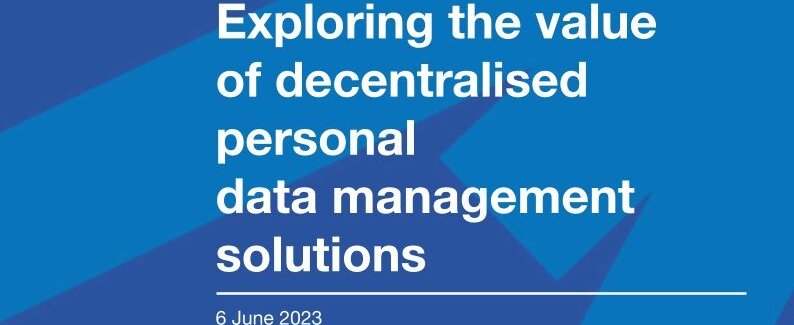
In recent decades, digital platforms have become an increasingly dominating medium through which consumers access goods and services. This comes with trade-offs as the exchange of personal data is often needed to sustain the viability of these platforms’ commercial models, eg. through personalised advertising strategies.
This, in addition to the dominance of the digital platform model, has led to a regime whereby many individual’s personal data is held by an array of different platforms. These data can give platforms and companies a competitive edge in new markets over new entrants (eg Large Language Models, digital healthcare), as well as enabling invasive data practices like online behavioural advertising, or the sharing of these data with law enforcement.
Over the last decade, in an attempt to answer the regulatory debates and challenges around data protection legislation, people and organisations have developed several technologies — providing digital spaces for users to store, transfer and withdraw their data from desired service providers, social media platforms and applications relating to banking, health and even retail. However, as the landscape of these products is at an early stage, there has not yet been a study looking at how these products might benefit their target audiences and the wider economy.
Through this study, we explore the main benefits of these decentralised personal data management solutions (PDMS) for enterprises, individuals, and the wider economy, and map the key challenges that seem to be limiting their widespread adoption. Through desk research, a content analysis of each product description, and supplementary interviews, we found that decentralised PDMSs have the potential to benefit enterprises in four areas:
- complying with data protection regulations,
- increasing security and trust,
- improving data-sharing, and
- enabling business model innovation.
What next?
Through this research, we have investigated the value of decentralised PDMSs and discovered that there is significant potential for these technologies to unlock a mutually-beneficial economic regime between consumers and enterprises, undergirded simultaneously by trust and growth.
We will continue to investigate these issues, and are interested in hearing from others working on this topic across industry and civil society. If you’d like to stay informed about our work in this area, provide feedback on this report, we would love to hear from you! You can get in touch with us by emailing the ODI’s Research and Development team at [email protected].